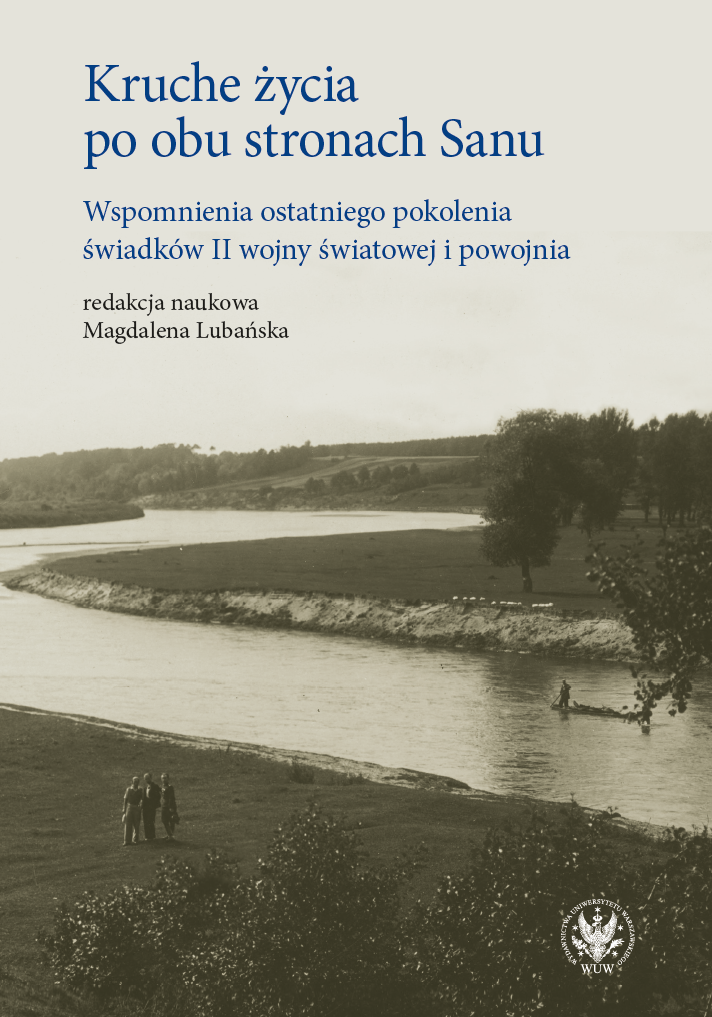Antropologia wojny i powojnia w perspektywie oddolnej. Wprowadzenie
The Anthropology of War and the Postwar Period in a Grassroots Perspective. Introduction
Author(s): Magdalena Lubańska
Subject(s): Anthropology, Customs / Folklore, Cultural Anthropology / Ethnology, WW II and following years (1940 - 1949), Post-War period (1950 - 1989)
Published by: Wydawnictwa Uniwersytetu Warszawskiego
Keywords: precarious life; borderlands; (post)war; (post)memory; violence; ethnographic fieldwork
Summary/Abstract: The introductory chapter discusses the background and methodology of the ethnographic fieldwork research conducted by the authors of this volume under the supervision of its editor. The researchers conducted in-depth interviews mostly with the members of Ukrainian-Polish families, who escaped resettlement to the so-called Recovered Territories in 1944–1947. Drawing on the anthropological literature on the specificity of cultural borderlands as well as memory and trauma studies, Lubańska clarifies why the authors avoid ethnocentric perspective in their analyses. Instead, inspired by Judith Butler’s reflections on precarious lives, the researchers sought to recognize the emic points of views on what determined belonging to the protected ‘we’, and what caused someone’s life to be considered less valuable. Focusing on situational analysis, Lubańska points out that the picture of the war and the postwar period that emerges from the interviewees’ accounts differs significantly from the content imposed by the historical policy aimed at creating national myths and overseeing what should be remembered, and how. Black-and-white, teleologically structured historical narratives are replaced by dramatic, axiologically complex human stories. The witnesses’ memory of past events continues to amaze us and, although it deprives us of landmarks, it also invalidates petrified forms of interpreting the past.
- Page Range: 7-31
- Page Count: 25
- Publication Year: 2024
- Language: Polish
- Content File-PDF

